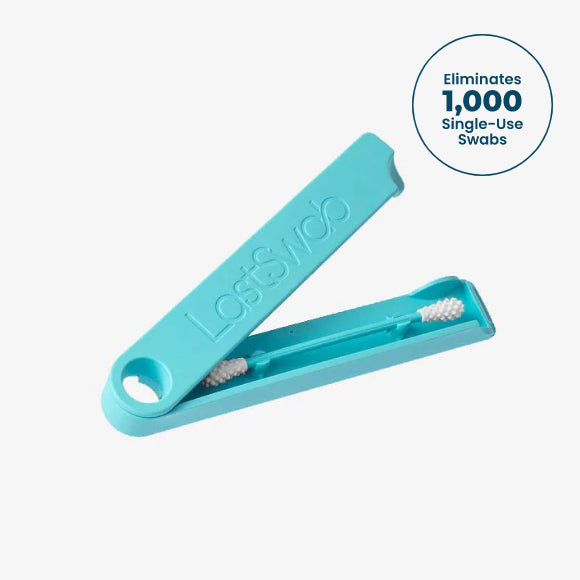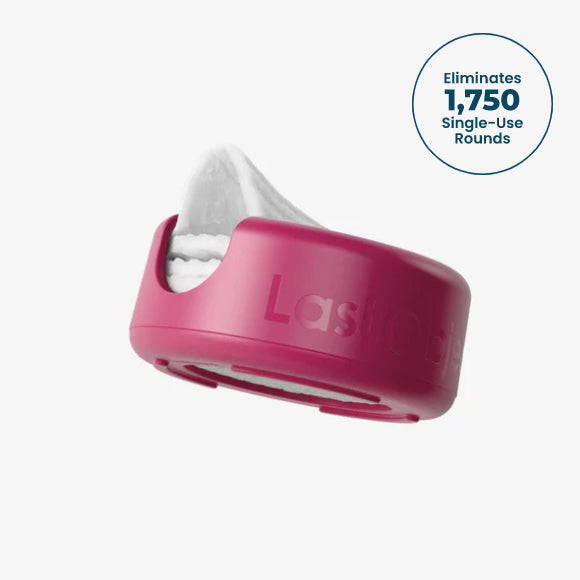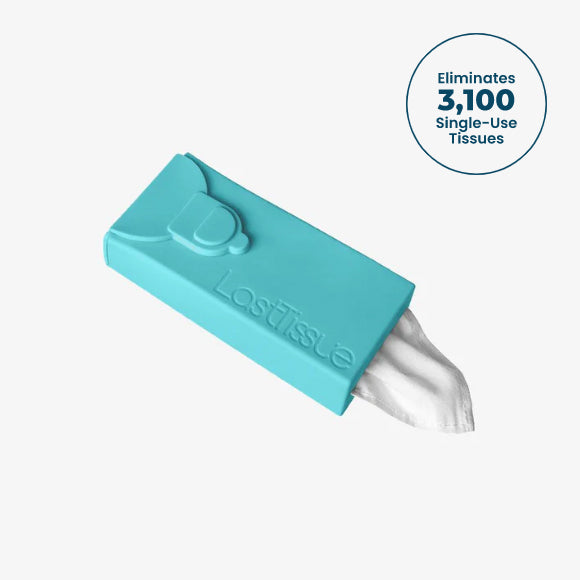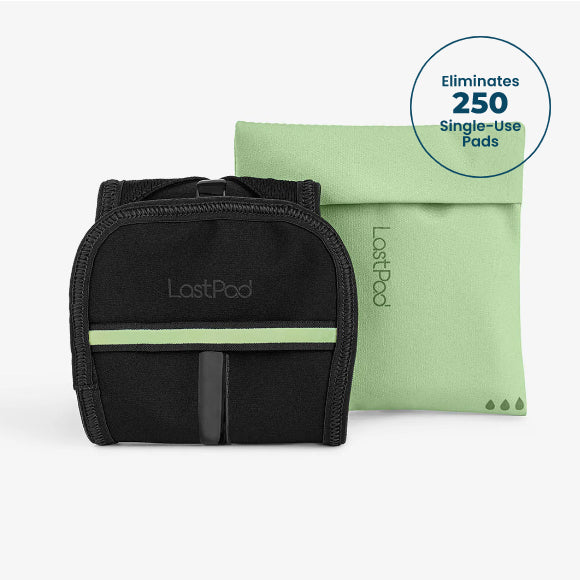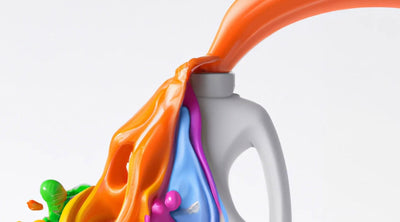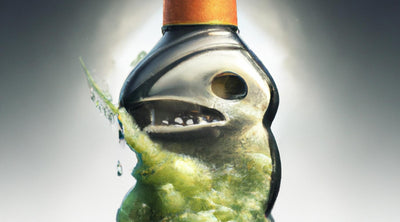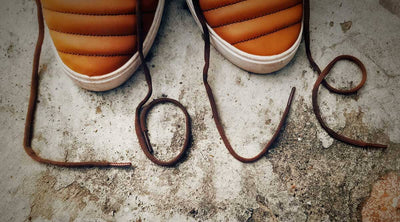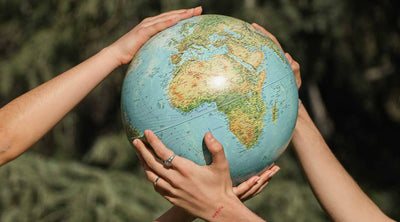5 Ways Cotton Swabs Impact the Planet
30 janvier 2020When was the last time we’ve used a cotton swab? Maybe it was just this morning or maybe a little longer. These useful little things can clean our ears, help with makeup mistakes and application, and a multitude of other things.
What about after we are done with them? Where do they end up? Another question is: what's required to make so many of these in order to meet the world's daily demands?
Because cotton swabs are intended to be a single use item, this means they will almost always be thrown out immediately after their first use.
1.5 million disposable swabs are produced every single day. All of these disposable swabs require resources to produce, ship, and package them all to be thrown out after one use. Sometimes they are even flushed down toilets or sneak out of our trash systems and into the environment.
Cotton swabs have several different impacts associated with them, so let’s dive into those:
- Ocean Pollution
- Fossil Fuel Demand
- Land Use
- Water Use
- Mindset
Ocean Pollution

A lot of us have probably seen the picture of the seahorse holding a cotton swab, if not click here. It’s a rather beautiful photo of a cute little seahorse, but with an unsettling side to it. The seahorse often uses its tail for attaching to things or for plucking and carrying seaweed. Yet, here it’s shown holding something completely opposite from seaweed: a human made cotton swab.
Ocean pollution is no joke, 8 million metric tons of plastic enters our oceans each year (Ocean Conservancy). Since most of us aren’t great at comprehending big numbers, that’s like dumping a full garbage truck of plastic into the ocean every minute of every day, for a whole year. This is a lot, and obviously it takes a toll on our ocean and therefore our earth as a whole.
While 100% of the ocean’s plastic pollution isn’t from disposable swabs, they are responsible for a measurable chunk (about 1-6%). But don’t fret, it’s easy to reduce this impact because we’ve built a reusable version!
Fossil Fuel Demand

By purchasing disposable swabs, we are sending a message to the industries that we don’t mind using fossil fuels. We’re also saying we don’t mind using fossil fuels for things that we’ll throw away after one use.
All of our actions whether it be creating a demand for cotton swabs or driving a car, have a huge influence on the tone of what society wants. By creating this demand, we are telling industries to keep purchasing fossil fuels which is telling fossil fuel industries to keep pumping them out of the ground.
Extracting, transporting, and refining fossil fuels comes with its own footprint which is then attached to every single cotton swab we use. This has impacts on local communities such as current air quality and emissions, water and ground pollution, and more.
It’s much better to demand one reusable version of something rather than hundreds or thousands of single use versions.
Land Use

1.5 million cotton swabs are produced daily...daily! So while the little bit of cotton on each end is rather small, those little things add up! And in this case, rather quickly.
It’s nice when things are made from natural fibers, but everything comes with a cost. Cotton, along with all other crops, requires land. Requiring more land means less space for wildlife and forests that otherwise would have grown there. Stripping land for crops can impact current air quality and biodiversity on a local and global scale.
As we know, trees and plant life are the planet’s lungs. Trees sequester carbon and replace it with oxygen, which has a tremendous effect on future/current air quality.
Water Use

There are two sources of water use from cotton swabs: one is from plastic and the other is from cotton. Both plastic and cotton however, affect water in a similar way in that they both have the potential to pollute natural waterways. This impacts the amount of natural and fresh water.
One pound of plastic requires 22 gallons of water to be used (Water Calculator). Maybe you’ve heard when we buy bottled water, the plastic bottle actually requires double the amount of water we are consuming from it. Plastic is a perfect example of water waste.
Cotton is a thirsty crop. It requires 20,000 litres of water per one kilogram of cotton (WWF). Countries like the U.S. have come a long way in improving energy efficiency, pesticide use, and water waste/consumption.
The issue is, cotton production still has a long way to go and there are still a lot of producers out there who are far from modern environmental practices. A lot of these producers are who we source our materials from.
Mindset

By using disposable products every single day and sometimes several times per day, we are affecting our mindset. When we waste cotton and plastic in the form of a single use cotton swab, we are likely to keep this trend going in other parts of our lives.
Our everyday actions, no matter how small, have this amazing potential to overflow into all aspects of our lives.
This is often mentioned as the hidden impact of zero waste. However, just because it’s hidden doesn’t mean it’s not important. On the contrary, it’s actually so important it has received it’s own article on our blog, click here for that.
As you can see, there are several ways that cotton swabs and buds impact the planet. All that’s required is one disposable swab. When cotton swabs are made in the amounts as stated above, this impact gets larger every day.
Most of this blog post felt like bad news, but it’s not all bad because we have a solution! For those who want to still use cotton swabs but don’t want to contribute to the above problems, they can switch to LastSwab. This is actually the first product that LastObject has made and we’re so happy we can provide a solution to this global issue.

For some, switching to a reusable cotton swab may be the first step they take. For others, maybe they’ve been on a sustainable journey for a while and are just now discovering LastSwab. Whether it’s people just starting out or seasoned eco-warriors, we have products to replace the disposable swab. You can choose between one for general ear cleaning or even one for beauty routines.
Every action we take has an impact. When we are purchasing a product or service this creates a demand. When we think about our daily actions we’ll feel a lot better knowing we are doing our part to be mindful of our impact.
We can ditch the single use cotton and plastic, pick up a LastSwab, and rest easy knowing we are making yet another positive impact in our simple daily routines.
MORE Sustainability 101 ARTICLES View all ›
Ready to make
the switch?
- Powerful Cleaning
- Dissolves Easily
- Skin-Friendly
- Eco-Friendly
- No Mess





